I am trying to optimize a join query which is taking more time when the offset increases. Your suggestions will be helpful.
SELECT *
FROM document_1 AS doc_1
JOIN document_1 AS doc_2
ON doc_1.id_col_11 = doc_2.id_col_21
AND doc_1.id_col_12 = doc_2.id_col_22
WHERE doc_1.id_col_13 = 'ABC'
AND doc_1.id_col_14= 'XYZ'
ORDER BY doc_1.created_date, document_1.id
OFFSET 0
LIMIT 20
I have created indexes as below:
CREATE idx_1 ON document_1 (id_col_11, id_col_13, id_col_14);
CREATE idx_2 ON document_1 (id_col_21, id_col_22);
OFFSET LIMIT TIME
0 100 5.9s
10 100 6.0s
1000 100 5.9s
10 1000 16.5s
100 500 11.4s
When the offset increased, the performance dropped. I am using Spring data to connect to a Couchbase database.
